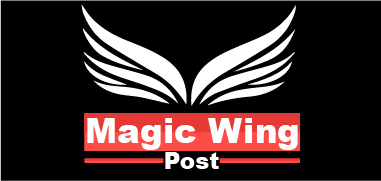Navigating the intricacies of a good notice can be a daunting task for anyone in the financial realm. In this article, we delve into Brook Taube’s perspective on this process, providing valuable insights and actionable advice. At the heart of Brook Taube Wells notice take on the Wells Notice process is a deep understanding of its implications. A Wells Notice is an indication from regulatory bodies, such as the SEC, of their intention to bring an enforcement action. It’s a crucial moment that demands careful consideration and a strategic approach.
Brook Taube’s Expertise:
Brook Taube, with his wealth of experience in the financial industry, sheds light on the nuances of responding to a Wells Notice. As a seasoned professional, he emphasizes the importance of a proactive stance in addressing regulatory concerns.
Early Engagement: According to Brook Taube, engaging with regulators early in the process can be beneficial. Establishing open communication demonstrates cooperation and a willingness to address concerns.
Legal Counsel: Seeking legal counsel is paramount. brook Taube Wells notice recommends enlisting the expertise of experienced attorneys who specialize in regulatory matters. They can guide you through the process, ensuring your responses are thorough and well-structured.
Navigating the Wells Notice Process:

Brook Taube’s approach revolves around a comprehensive understanding of the Wells Notice process. From crafting responses to anticipating potential outcomes, he emphasizes the need for meticulous preparation and attention to detail.
Brook Taube’s Tips for Success:
Thorough Documentation: Document every communication and action taken during the Wells Notice process. This not only demonstrates transparency but also provides a clear record for future reference.
Compliance Review: Brook Taube underscores the importance of conducting an internal compliance review. Identifying and rectifying any potential issues can strengthen your position and showcase a commitment to regulatory adherence.
Collaborative Approach: Brook Taube underscores the importance of fostering a collaborative relationship with your legal team. By working closely together, you can ensure that everyone is aligned on the strategy and messaging, presenting a united front in your responses to regulatory inquiries.
Continuous Communication: Throughout the Wells Notice process, maintaining ongoing communication with regulators is crucial. Brook Taube advises against radio silence, emphasizing the benefits of keeping the lines of communication open. Regular updates showcase your commitment to resolution and can help build a positive rapport.
Proactive Remediation:
In addition to responding to the immediate concerns raised in the Wells Notice, Brook Taube Wells Notice advocates for a proactive approach to remediation. Addressing any identified compliance shortcomings promptly not only aligns with regulatory expectations but also positions your organization as committed to continuous improvement.
Educational Initiatives:
Brook Taube believes in the power of education as a preventive measure. Investing in ongoing training programs for your team can help instill a culture of compliance, reducing the likelihood of future regulatory issues. Demonstrating a commitment to education can also be viewed favorably by regulatory bodies.
Building Reputational Resilience:
Beyond the immediate challenges of a Wells Notice, Brook Taube emphasizes the importance of building reputational resilience. Being transparent about the steps taken to address regulatory concerns and showcasing a commitment to ethical business practices can help mitigate potential damage to your organization’s reputation.
Read More Taiwan’s Finest Car Rentals
Ongoing Compliance Monitoring:

To avoid future regulatory pitfalls, Brook Taube recommends implementing robust compliance monitoring processes. Regularly reviewing and updating internal controls can help identify and address issues before they escalate, demonstrating a proactive commitment to regulatory compliance.
Mock Regulatory Exercises: To enhance preparedness for potential regulatory inquiries, Brook Taube recommends conducting mock regulatory exercises. Simulating scenarios allows your team to practice responses, identify areas for improvement, and refine communication strategies. This proactive measure can bolster your organization’s ability to navigate regulatory challenges effectively.
External Expertise: Brook Taube advises considering external experts to conduct independent assessments of your compliance practices. Bringing in objective professionals can provide a fresh perspective, uncovering potential blind spots, and ensuring a comprehensive evaluation of your regulatory compliance framework.
Maintaining Employee Morale:
Recognizing that the Wells Notice process can be stressful for employees, Brook Taube emphasizes the importance of maintaining morale within your organization. Transparent communication about the situation, along with reassurances about the steps being taken to address concerns, can contribute to a positive and supportive work environment.
Strategic Stakeholder Communication:
Brook Taube stresses the significance of strategic communication with stakeholders during the Wells Notice process. Crafting clear and concise messages for clients, investors, and other stakeholders can help manage expectations and maintain trust. Proactive communication can also mitigate potential negative impacts on your relationships.

Post Resolution Reflection:
Once the Wells Notice process resolves, Brook Taube recommends conducting a thorough post-resolution reflection. Analyzing the entire experience, including strengths and areas for improvement, can inform future compliance strategies. This reflective approach aligns with Brook Taube’s commitment to continuous learning and enhancement.
A Holistic Approach to Compliance:
In conclusion, Brook Taube’s holistic approach to the Wells Notice process goes beyond the immediate concerns of regulatory inquiries. It encompasses ongoing improvement, employee well-being, stakeholder relations, and a commitment to learning from the experience. By adopting this comprehensive strategy, guided by the insights of industry experts like Brook Taube, organizations can navigate regulatory challenges with resilience and integrity.
Frequently Asked Questions (FAQs)
What is a Wells Notice, and why is it significant in the financial industry?
A Wells Notice is a formal communication from regulatory bodies, such as the SEC, indicating their intention to bring an enforcement action. In the financial industry, it serves as a crucial step in the regulatory process, signaling potential legal actions against individuals or organizations.
Who is Brook Taube and why is his perspective on the Wells Notice process valuable?
Brook Taube is a highly experienced professional in the financial industry. As a seasoned expert, his insights provide a unique and informed perspective on navigating the Wells Notice process, offering valuable guidance for individuals and organizations facing regulatory challenges.
What are some key strategies Brook Taube recommends for responding to a Wells Notice?
Brook Taube emphasizes early engagement with regulators, seeking legal counsel, and maintaining open communication. These strategies aim to demonstrate cooperation, ensure thorough responses, and establish a proactive stance in addressing regulatory concerns.
How can collaboration with legal teams enhance success in navigating the Wells Notice process?
Brook Taube suggests fostering a collaborative relationship with legal teams to ensure alignment on strategy and messaging. This collaboration presents a united front in responding to regulatory inquiries, enhancing the overall effectiveness of the process.
What steps does Brook Taube recommend for ongoing compliance monitoring?
Brook Taube recommends implementing robust compliance monitoring processes, including regular reviews and updates to internal controls. These measures help identify and address compliance issues proactively, showcasing a commitment to regulatory adherence.






